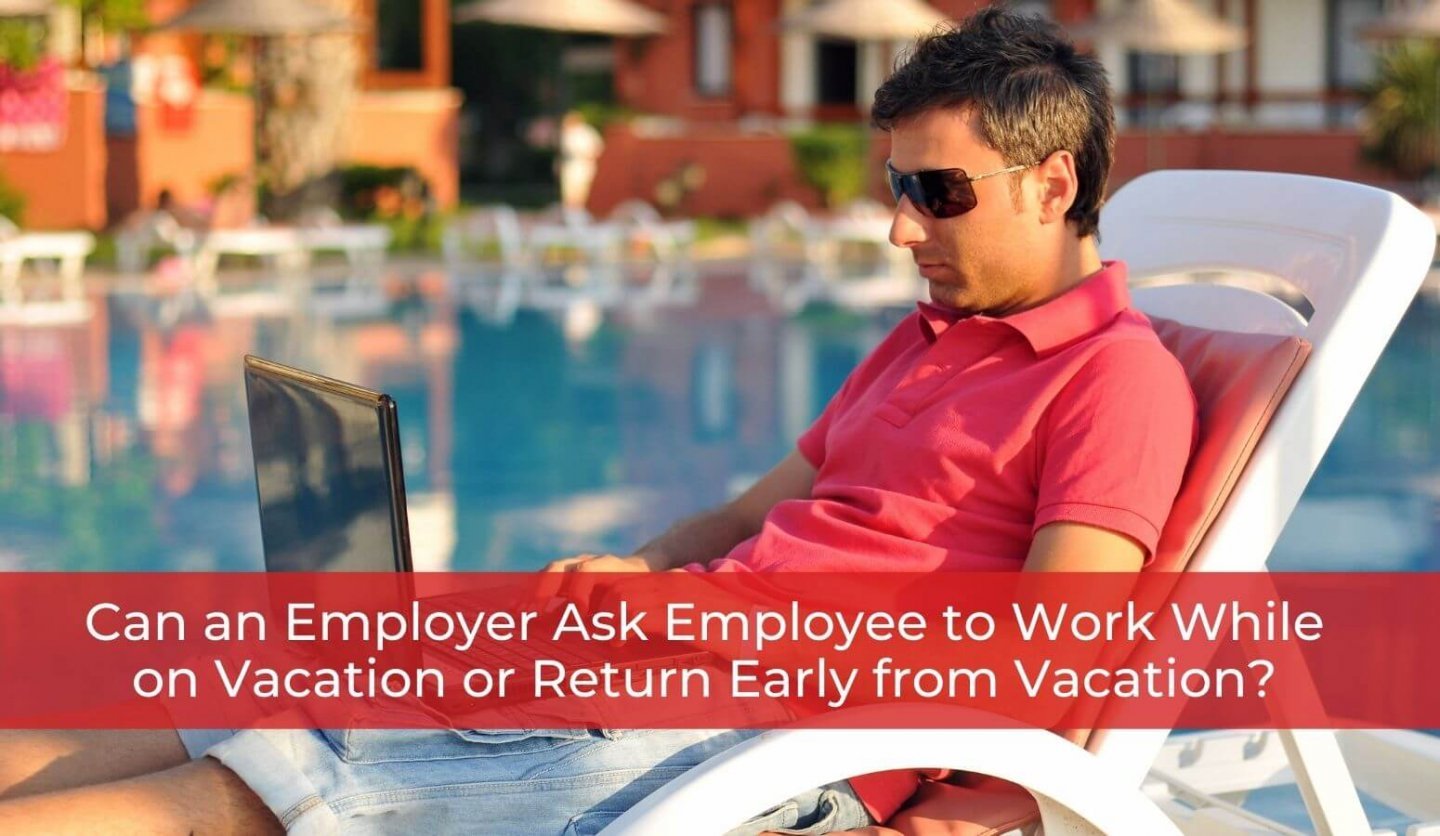
Can an Employer Ask Employee to Work While on Vacation or Return Early from Vacation?
What should an employee do if their boss cancels an approved vacation? Or if an employer requests an employee to work while on vacation? The answer may be surprising to some employees because the law gives employers the right to set employee vacation time, employers often have the right to change approved vacation dates if reasonably required for business purposes.
This will be circumstance-dependent. For example, unionized employees will likely have rights that protect approved vacation time. Non-union employees are unlikely to have these same protections. This means that despite any approved vacation time, a vacation may be cancelled or ended early where there is a valid work emergency that requires all hands on deck. This may include issues like unavoidable staffing emergencies or a last-minute deadline that could not otherwise be resolved.
Asking an employee to work while on vacation is also circumstance-dependent. Employees are entitled to a minimum amount of vacation time per year. Employers that demand an employee to work while on vacation may be withholding legally required vacation time. However, this will also be subject to what may be considered ‘reasonable’. Sending a few emails or resolving a quick issue is unlikely to entitle an employee to a new vacation day or pay for their work.
Employers may be on the hook for financial losses resulting from a last-minute cancellation. For example, an employee may ask for compensation for a missed flight or event. Employees may have mixed success in enforcing payment for financial losses if their employer is not cooperative.
Employers should work with their staff to come to fair and reasonable resolutions wherever possible. Unreasonably canceling or rescheduling employee vacations is sure to undermine workplace morale and employee retention.
Further, an employer that chooses to dismiss an employee for not working during their scheduled vacation time may be liable for wrongful dismissal or constructive dismissal damages. Refusing to return to work during an approved vacation is unlikely to amount to just cause. This means that while an employer may be within their rights to dismiss an employee over a vacation dispute, they must provide proper notice and severance.
To better understand your entitlements and obligations under employment laws, we encourage employers and employees to seek legal advice. We at Whitten & Lublin are happy to provide insight and advice into your specific circumstances and guide you more on the difference between termination pay and severance pay. If you’re looking for employment lawyers and would like more information about what Whitten & Lublin can do for you, please contact us online or by phone at (416) 640-2667 today.



